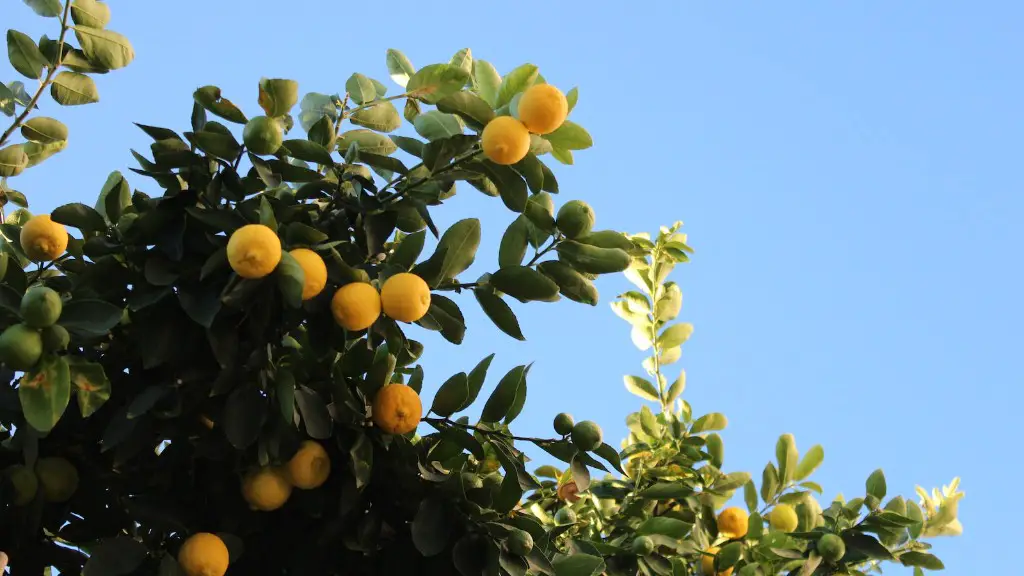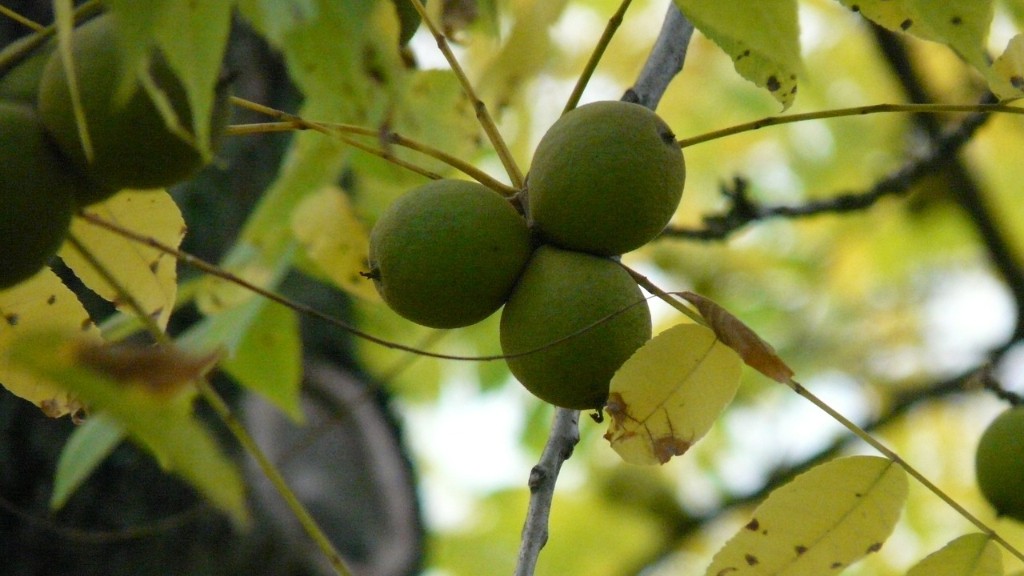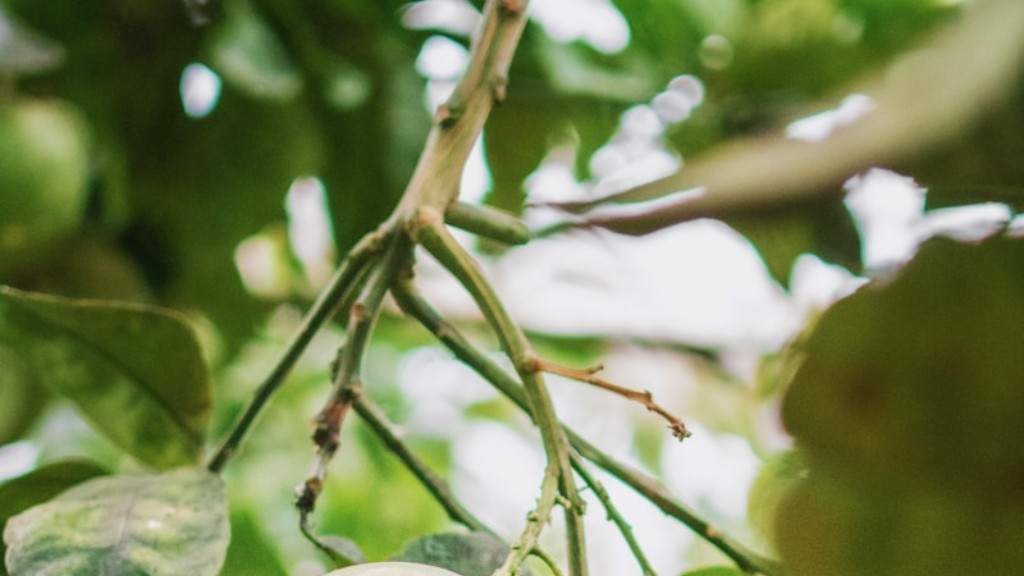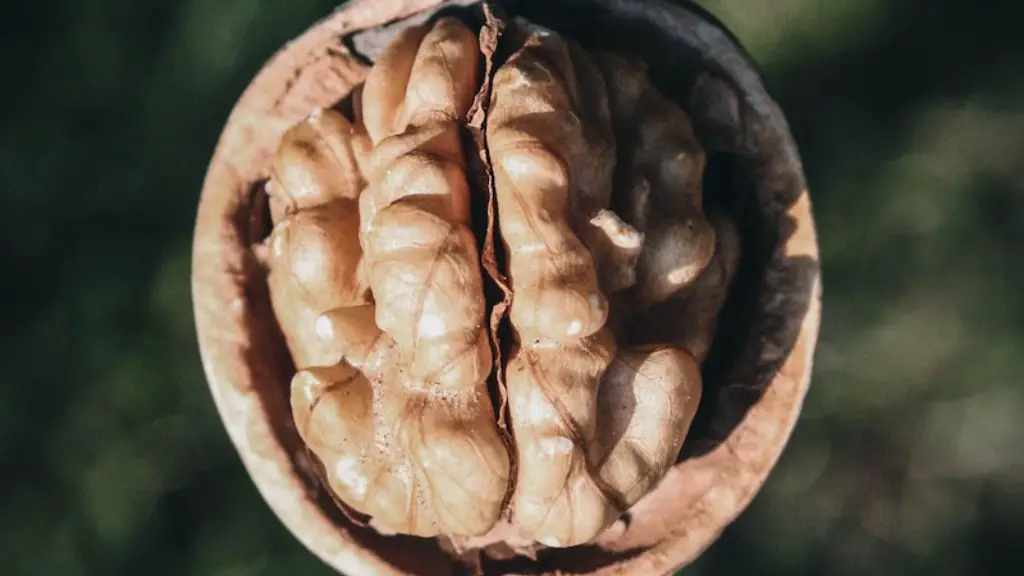It is important to understand how often to water a dwarf lemon tree and why it is important to get it right. Dwarf lemon trees need regular irrigation to maintain a healthy growth and production. Generally, the tree will need to be kept moist at all times. During periods of intense heat or drought, you may need to water the tree more often. However, over watering can also be detrimental, so it is important to be aware of the signs that the tree needs more or less water.
In general, you will want to water a dwarf lemon tree once or twice every week. If you live in an area with low rainfall, you should water more often. On the other hand, if you live in an area with frequent rainfalls, you may not need to water it as often. The tree should receive approximately one inch of water each week. If the soil feels moist when you press your finger down upon it, then your tree has enough water. If the soil feels dry and crumbly, it needs more.
It is important to water your tree deeply and thoroughly. Saturate the soil around the base of the tree, allowing the water to get to the deepest roots. It is also important to use a hose or sprinkler at a level that is suitable for the tree so that it is not too forceful. Too much water pressure can damage or even destroy the roots.
Do not water the dwarf lemon tree if you only suspect that it may need it. Wait until the soil is dry and then water it thoroughly. Once you notice that the soil is moistening up again, you should give the tree a few days before watering it again. This will prevent over-watering the tree, which can lead to root rot and other diseases.
Always use clean, chlorine-free water when watering your dwarf lemon tree. Chlorine can injure the roots, leaves and fruit of the tree. If you have access to rainwater, you should use that if possible. If not, you can collect water in a bucket or a rain barrel and use this to water the tree.
It is also important to be aware of the season. If you live in a cold-weather region, you may need to water your dwarf lemon tree less often than if you lived in a warm-weather region. In cold weather, the tree will be dormant, so it should be watered less than in the warmer weather. Also, if there is snow on the ground, your tree should not be watered as this can cause it to become waterlogged.
In conclusion, when it comes to how often you should water a dwarf lemon tree, there is no hard and fast rule. It will depend on the climate in which you live, the season and the amount of rainfall that your area receives. Regular irrigation is important for healthy growth and production, but be wary of over-watering and use only chlorine-free water.
Factors affecting frequency of watering
One of the main factors that will determine the frequency of watering your dwarf lemon tree is the climate in which you live. In hotter climates, it may be necessary to water your tree more frequently in order to ensure adequate hydration and growth. On the other hand, if you live in a cooler clime, the tree may require less frequent watering.
The amount of rainfall your area receives is also likely to influence the frequency of watering your dwarf lemon tree will need. If your area experiences low or irregular rainfalls, it is likely that your tree will need to be watered more frequently. On the other hand, if your area receives regular, above average precipitation, it less likely that your tree will need to be watered as frequently.
The season is another factor that may affect the frequency of watering your dwarf lemon tree. In winter, when the tree is in it’s dormant period, it is unlikely to require the same level of hydration as it would in the warmer summer months. Similarly, if there is snow on the ground, it will not be necessary to water your tree, as the snow can provide sufficient hydration.
The soil in your area can also influence the frequency of watering your dwarf lemon tree. If your soil is already moisture laden, it may not require as much hydration as soils that are coarser and drier. As such, it is important to assess the soil in order to gauge the frequency and quantity of watering your tree will need.
The type of lemon tree you have will also have an effect on the frequency of watering your dwarf lemon tree will need. Different varieties may require different amounts of water. As such, it is important to familiarize yourself with the specific requirements of your type of lemon tree in order to ensure adequate hydration.
Adequate irrigation criteria
When it comes to adequately irrigating a dwarf lemon tree, there are certain criteria that must be met in order for the tree to thrive and produce abundantly. Firstly, it is important to make sure that the water you are using is chlorine-free. Chlorine can cause damage to the roots, leaves and fruit of the tree, and can therefore reduce the yield.
Ensuring that the soil around the tree is adequately wet is essential. This can be achieved by using a hose or sprinkler to water the tree, although the pressure should be low enough so as not to damage or destroy the roots. Saturating the soil can ensure that the water reaches the deepest roots, becoming an efficient way of hydration.
It is important to note that overwatering your dwarf lemon tree can be detrimental. You should assess the soil prior to watering, and only water if the soil is dry and crumbly. Once watered, it may be beneficial to give the tree a few days before re-watering, in order to allow the soil to absorb some of the moisture. This helps to prevent over-watering.
It is also important to consider the frequency of watering your tree. Generally, a dwarf lemon tree will need to be watered between once and twice a week, depending on the climate and amount of rainfall. The tree should receive approximately one inch of water per week.
Finally, it is important to note that the frequency of watering may vary depending on the season. During winter, when trees are dormant, they should be watered less than when in warmer climes. Similarly, if there is snow on the ground, your tree should not be watered as this can cause it to become waterlogged.
Important tools for watering
When it comes to watering a dwarf lemon tree, there are certain tools that can be of benefit, helping to ensure that the process of irrigation is both effective and efficient. Firstly, a watering can or garden hose can be invaluable in accurately delivering the correct amount of water to the tree. Watering cans can be useful for small gardens, as they allow for precision, whereas a garden hose can provide stronger pressure for larger areas.
If you are not able to access regular supplies of chlorine-free water, a rain barrel can help to collect rainfall or runoff water, which can then be used to water your tree. Additionally, a rain barrel can help to reduce water wastage, as it allows you to collect water and store it for use whenever necessary.
When watering your tree, it is also beneficial to use soaker hoses. These devices enable the water to penetrate the soil more deeply, soaking the ground and saturating the roots. This is especially important when it comes to dwarf lemon trees, as it ensures that the water reaches all the way the down to the deepest, most important roots.
The correct tools can provide efficient, precise and adequate hydration to your dwarf lemon tree. Using more precise tools for smaller trees can help to ensure that the tree receives sufficient water without over-watering, and also prevents the loss of water due to evaporation.
Follow-up care
Once your dwarf lemon tree is sufficiently hydrated, there are certain measures you can take to ensure that it continues to thrive. Firstly, it is important to ensure that the tree is properly fertilized. Applying an appropriate fertilizer to the soil can help to ensure that the tree is receiving the adequate nutrients to produce healthy, delicious lemons.
It is also important to check the tree regularly for signs of pests or disease. On occasion, aphids, scale or mealybugs may cause damage to the tree’s leaves, fruit or roots. If left unchecked, these pests can cause serious damage to your tree. Similarly, any signs of disease should also be attended too immediately.
As the lemons begin to grow, you may need to prune branches or leaves for a better harvest. Pruning in moderation can be beneficial, as it can help to shape the tree and give it structure. Additionally, it can increase the amount of light and air that reaches the fruit, allowing it to grow fuller and more abundant.
You should also check the soil regularly for any deficiencies. If the soil is lacking in certain nutrients, you may need to add more compost or use an appropriate fertilizer. Fertilizing the soil can provide the tree with the necessary sustenance to produce healthy lemons.
Finally, it is important to check your tree for any signs of damage. If you notice any burnt or wilted leaves, you should prune them to help the tree recover and stay healthy. You should also be aware of the temperature of the root zone, and ensure it is not too cold, as this can damage the tree.
Final advice
Adequately watering a dwarf lemon tree is essential to maintain healthy growth and production. Generally, the tree should be watered between once and twice a week. However, you should also consider the climate, season, amount of rainfall and the type of tree, as these factors may affect the frequency of irrigation.
It is recommended to use chlorine-free water for effective hydration, and to saturate the soil thoroughly in order to reach the deepest roots. Tools such as watering cans and soaker hoses can be beneficial for precision and for reducing water waste. Furthermore, it is important not to over-water your tree, as this can cause root rot and other diseases.
Once you have watered your dwarf lemon tree, regular follow-up care is important, such as providing the tree with appropriate fertilizer, pruning branches to improve the structure and quality of the fruit, and checking the roots, soil and leaves for any signs of disease or pests.




